
As an intern or
working student at WTE

You don’t just want to watch; you want to get involved? You are looking for professional support for your thesis? In both cases, you’ve come to the right place! WTE offers you the opportunity to combine theory with practice as an intern or working student. You also have the opportunity to write your bachelor’s or master’s thesis at our company. Discover your strengths and gain valuable practical experience!
We are a forward-looking employer that puts people centrestage. We offer optimal working conditions, promote the personal development of our employees and provide targeted support to students in order to strengthen the next generation of experts. Our goal is to shape a sustainable future. Maybe together with you?
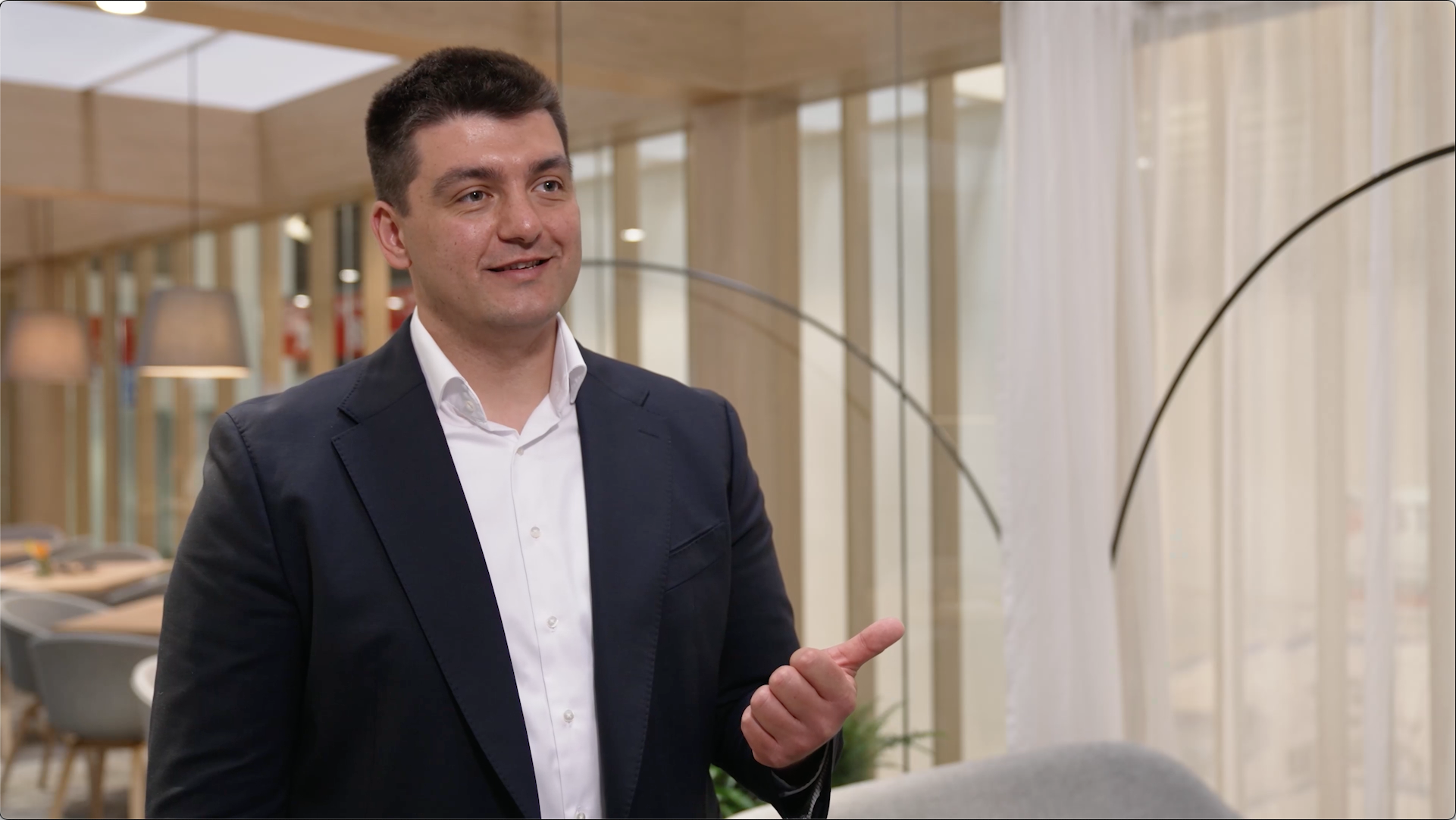
At WTE, anything is possible! In our short video, Dr Bojan Pelivano tells you how he went from intern to managing director.
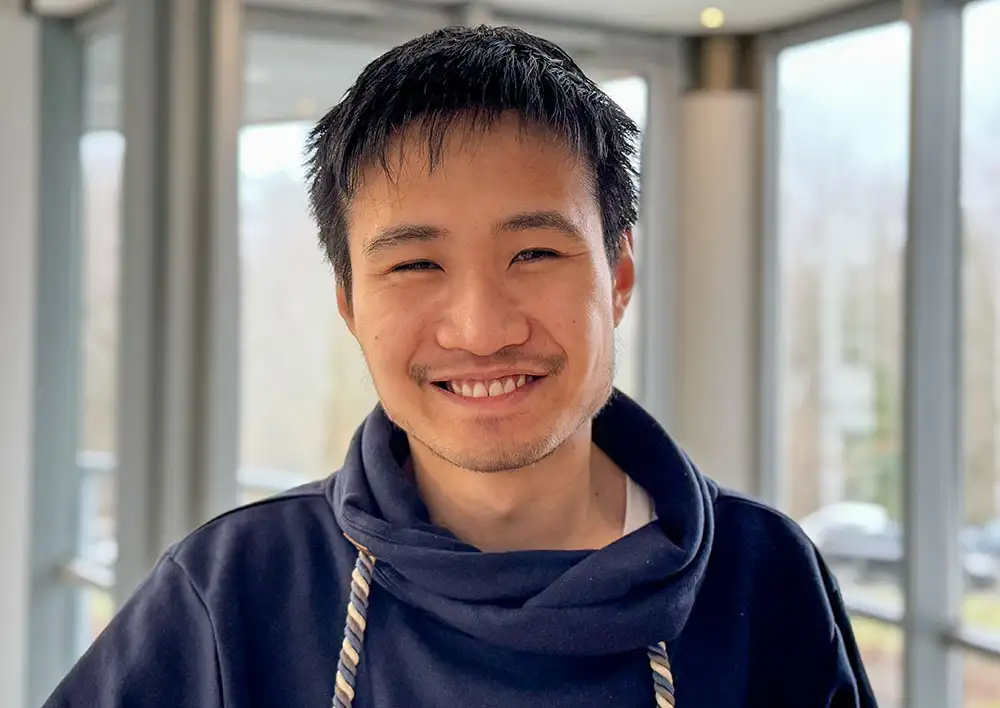
First steps into the practical world! As an intern at WTE, Marc Cao is taking advantage of the opportunity to expand his practical knowledge and to gain initial experience in the professional world. Here he shares his experiences.
What do you particularly like about your job and WTE?
The opportunity to learn a lot from my manager and other experienced colleagues. Also, the varied and future-oriented tasks that the Integrated Management System entails.
What are your key tasks?
The tasks range from quality management to environmental and energy management through to occupational health and safety.
How did you experience your first few days at WTE?
I got to know a very friendly and helpful team, and everything was done to ensure that new colleagues were given the best possible induction.
What motivates you at work?
No two days are the same. Every new day brings new exciting tasks and challenges.
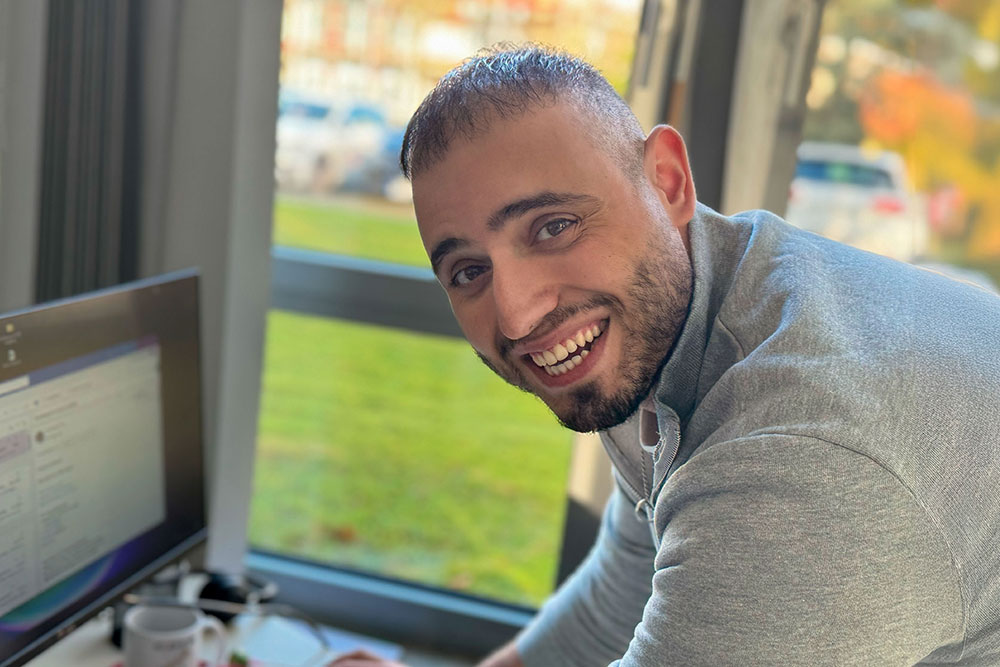
Theory meets practice! As a working student at WTE, Enis Elezi combines theoretical knowledge with insights into professional practice. The young man from Essen is studying industrial engineering with a specialisation in electrical engineering and information technology. So it’s no surprise that he ended up in the electrical engineering department at WTE. In our inter-view, he introduces himself and tells us about his first few weeks with us.
What does your everyday work in electrical engineering look like? What are your main tasks?
I work with a colleague on the Skopje project, one of the most technologically advanced wastewater and sewage sludge disposal sites in Europe. I support him in entering and reviewing data and in developing concepts. For example, I process motor data sheets, bid evaluations and bills of quantities.
What do you find interesting about WTE?
Its international orientation, the many innovative projects and the sustainability.
How were your first few days at WTE?
Very exciting and positive, definitely! I like the friendly atmosphere at WTE. The thorough induction and extensive support from my colleagues were also great. In the first few days, I had to get to know everything, but now I can play an increasingly active role.
Do you already know what you want to do after you finish your studies?
I already have some ideas, but I’m also open to gaining more practical experience to find the ideal direction for me. It’s important to me that I work in a profession that both suits my strengths and has a positive impact.
The beginning of a shared journey
Enis will not only work for WTE as a working student but is also likely to complete his mandatory internship with us and write his bachelor’s thesis here. A complete package, so to speak, and a prime example of what successful promotion of young talent looks like.
We regularly assign topics for final theses and project work to students. Our current topics range from the further development of water and wastewater treatment processes to nutrient and energy recovery, through to operational optimisation and emission reduction at wastewater treatment plants and sewage sludge incineration plants. You have a wide range of options!
Ekaterina Vasyukova, WTE Wassertechnik GmbH,
Head of Research and Development
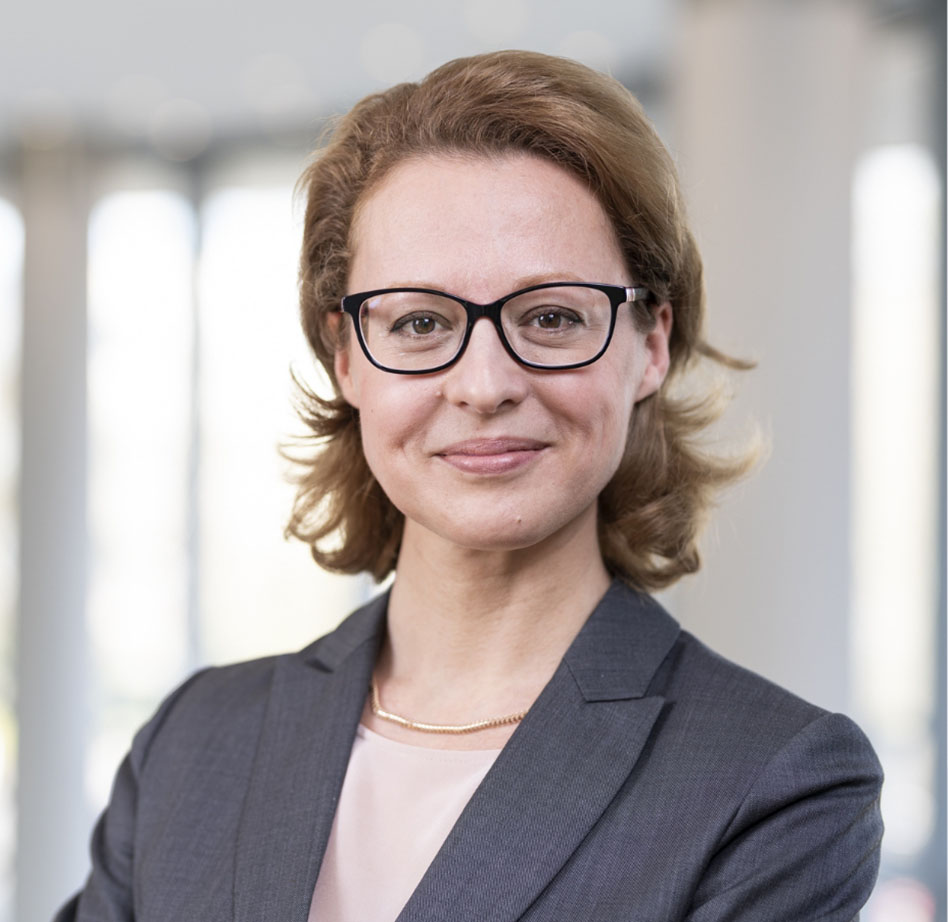

At WTE Wassertechnik, you learn from us and we benefit from your commitment. We offer you technical support in writing your bachelor’s or master’s thesis with practical relevance.
Our current topics: Further development of water and wastewater treatment processes, nutrient and energy recovery at wastewater treatment plants, energy and heat utilisation, operational optimisation and emission reduction at wastewater treatment plants and sewage sludge incineration plants.
You can also send us a speculative application with your own topic suggestion at any time. Simply send an email to our Human Resources department (karriere@wte.de) with the subject line ‘R&D: innovation@wte.de’.
As a forward-thinking company, we approach the challenges surrounding water as a raw material and a future worth living through interdisciplinary exchange. That is why we also rely on cooperation with renowned research institutes.
WTE maintains contacts with universities such as Duisburg-Essen and Bochum, which enables us to regularly offer bachelor’s theses in process engineering and civil engineering. We are currently also supervising two interns from North Macedonia as part of a GIZ programme, supporting them in finding accommodation, imparting knowledge and issuing a recognised certificate.
The WTE Group collaborates with the following renowned research institutions, among others:
What topics are moving the next generation of scientists? What challenges have they overcome and what insights have they gained? In exciting short interviews, our young researchers from Berlin provide insights into their work and share their experiences – from initial ideas to practical results.
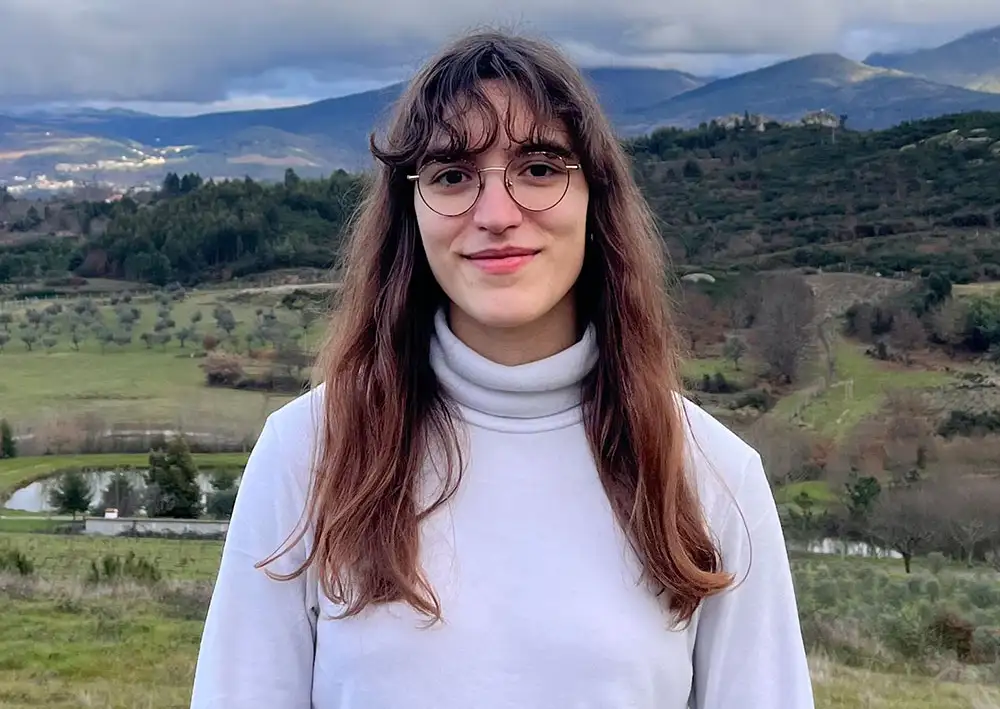
Barbara, how would you briefly describe the central question and focus of your master’s thesis?
My master’s thesis was titled: Development of descriptive dashboards for operational monitoring and benchmarking of international municipal wastewater treatment plants.. Although describing a benchmarking method and determining suitable key figures for performance comparison was also part of the work, the focus was primarily on developing the dashboard. The aim was to visually display operating parameters in order to simplify operational monitoring and make it more efficient.
What practical results have you achieved? What was researched, using which methods, and over what period of time?
The work took a little over six months. Initially, the focus was on the academic part, which introduced the basics of wastewater treatment plant operation, such as wastewater treatment processes, operations management and legislation.
Afterwards, I explored benchmarking and dashboards. In benchmarking, I presented a method for comparing the performance of wastewater treatment plants and determined suitable key figures for this purpose.
What particularly inspired you to tackle this topic?
Ever since my bachelor’s degree, when I first took the module on urban water management, I have found wastewater treatment plant operations very interesting. The topic of my master’s thesis was therefore a perfect fit, as it allowed me to gain practical experience in addition to my academic knowledge.
In what way could your findings be relevant to our work or our organisation?
The dashboard developed will be integrated into the WARIOS software so that wastewater treatment plant operators can access it daily for operational monitoring.
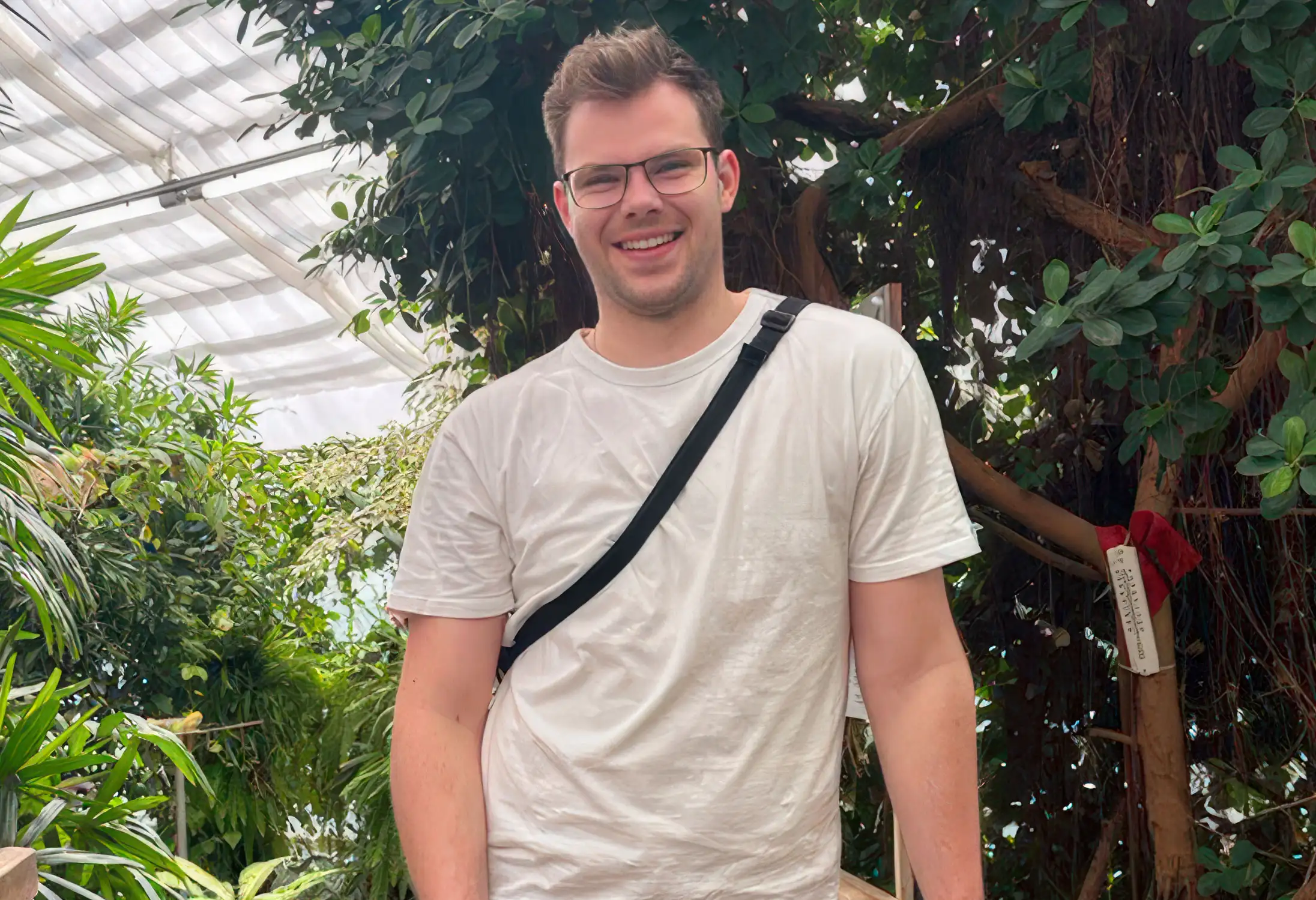
Adrian, how would you briefly describe the central question and focus of your Master’s thesis?
The topic of my master’s thesis is: Investigating the influence of biofilm thickness on the COD conversion rate in ceramic fuel cells using polarisation experiments. The biofilm thickness was regulated using carbon fibre fleece. The anode volume was increased by the addition of further layers of fleece. This provided the microorganisms with more space for growth.
What practical results did you achieve? What was researched, using which methods, and over what period of time?
The work spanned a period of just over six months. The results indicate that eight layers of fleece on the anode represent the optimum for the COD conversion rate. However, one layer of fleece remains the most efficient solution when considering the conversion rate per layer of fleece or per gram of ignition loss (mass of microorganisms).
What particularly inspired you to tackle this topic?
The topic was specified by the WTE. Even without much prior knowledge in the field of microbial fuel cells, I accepted the challenge and conducted research in this area.
In what way could your findings be relevant to our work or our organisation?
The results of my master’s thesis are relevant for further research in the aforementioned subject area of the Research and Development Department. The knowledge gained can be used to build fuel cells with higher COD conversion rates.
Would you like to seize this opportunity and get started at WTE alongside your studies? Then write to us at karriere@wte.de.
We look forward to hearing from you!